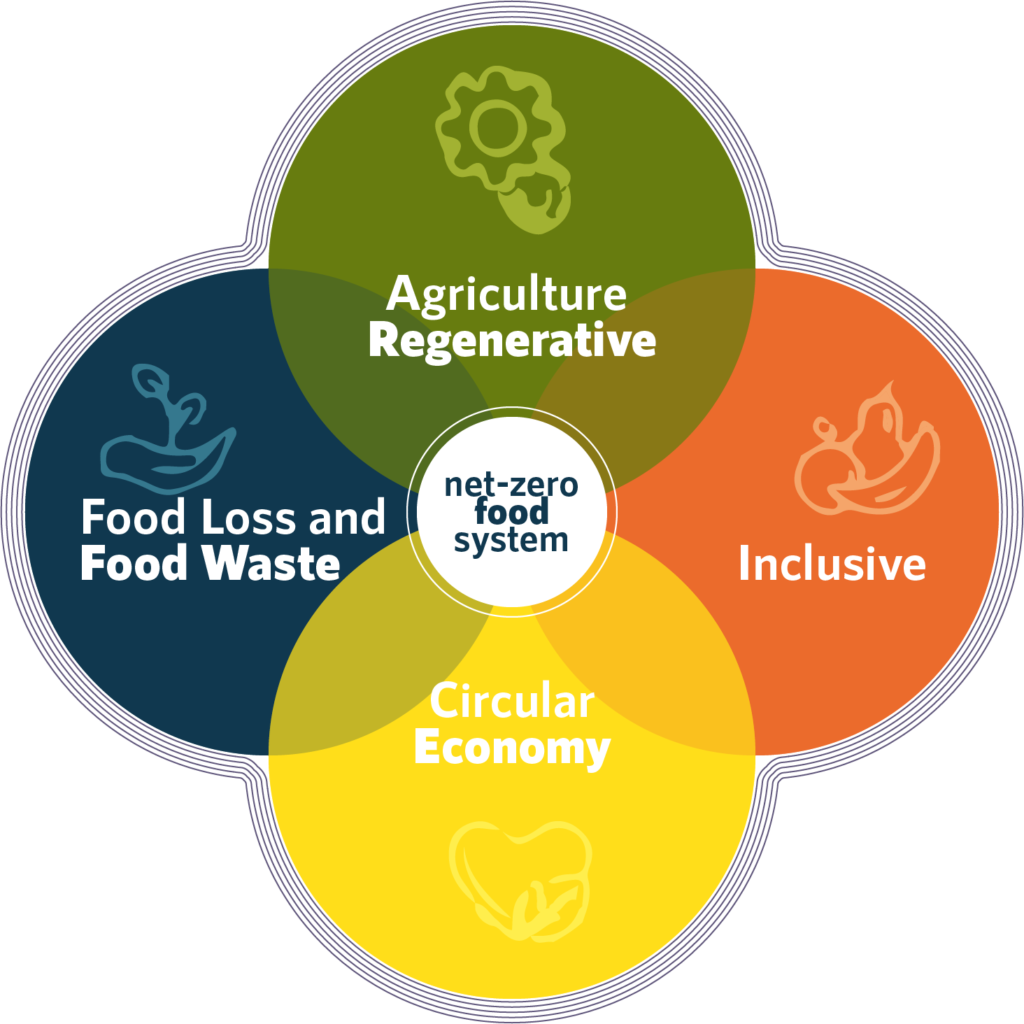






Reducing food waste

Adoption of sustainable agricultural policies with technology

Efficient water management

Investment in renewable energy

Use of agricultural organics

Support for regenerative agriculture


The world needs to produce an estimated 60 percent more food by 2050 to ensure global food security, and it must do so while conserving and enhancing the natural resource base. Water is a major input in the provision of food – from production in the field through all the steps in the value chain. Water is also required to meet personal and household needs, for energy and industrial production, and to maintain important water-dependent ecosystems and ecosystem services. With demand and competition for water on the rise, however, the planet’s water resources are under increasing stress due to climate change, poor management, and pollution.
Agriculture holds the key to successfully achieving the objectives and aspirations articulated in the Sustainable Development Goals and the Paris Agreement on climate change. It is also crucial to the livelihoods of hundreds of millions of smallholder farmers and rural communities worldwide.
Farmers must be at the center of any process of change in agriculture. Farmers can be empowered to conserve biodiversity, protect ecosystems, and minimize environmental impacts through appropriate policies that provide incentives and ensure effective governance.
Irrigation institutions must respond to the needs of farmers. Ensuring the reliable delivery of sufficient water, increasing the transparency of irrigation management, and achieving efficiency and equity in access to water is likely to require changes in attitudes in institutions and among farmers, as well as targeted investments in infrastructure modernization, institutional restructuring, and the upgrading of the technical capacities of farmers and water managers.
Countries have identified agriculture as a major sector of intervention in their nationally determined contributions to climate change mitigation, and many have placed water at the top of the list for envisaged adaptation measures.











Formada em engenharia agronômica na ESALQ/USP, Alessandra possui mais de 25 anos de experiência no setor de Agronegócio, Relações Institucionais e sustentabilidade já tendo atuado em importantes empresas desse ramo. Na Bayer, foi gerente de Produtos e gerente de Mercado na divisão de Sementes e Biotecnologia na divisão Crop Science. Além disso, liderou a área de Assuntos Corporativos (APSA) de Crop Science para o Brasil e foi presidente do extinto Conselho de Informações sobre Biotecnologia (CIB) além de representar a Bayer em diversas associações e comitês. Entre suas atribuições como diretora de Engajamento e Relacionamento com Stakeholders da Bayer estão a interlocução e aproximação com contatos da companhia em todo o Brasil e América Latina focando nos temas de meio ambiente, mudanças climáticas, mercado de carbono, biodiversidade e Cadeia de alimentos, entre outros.





Formada em engenharia agronômica na ESALQ/USP, Alessandra possui mais de 25 anos de experiência no setor de Agronegócio, Relações Institucionais e sustentabilidade já tendo atuado em importantes empresas desse ramo. Na Bayer, foi gerente de Produtos e gerente de Mercado na divisão de Sementes e Biotecnologia na divisão Crop Science. Além disso, liderou a área de Assuntos Corporativos (APSA) de Crop Science para o Brasil e foi presidente do extinto Conselho de Informações sobre Biotecnologia (CIB) além de representar a Bayer em diversas associações e comitês. Entre suas atribuições como diretora de Engajamento e Relacionamento com Stakeholders da Bayer estão a interlocução e aproximação com contatos da companhia em todo o Brasil e América Latina focando nos temas de meio ambiente, mudanças climáticas, mercado de carbono, biodiversidade e Cadeia de alimentos, entre outros.













In Brazil and in the world, rural producers are adhering to sustainable and economic agriculture practices, which use more bioinputs and biological organisms.
To improve plant fertility and reduce production costs.






